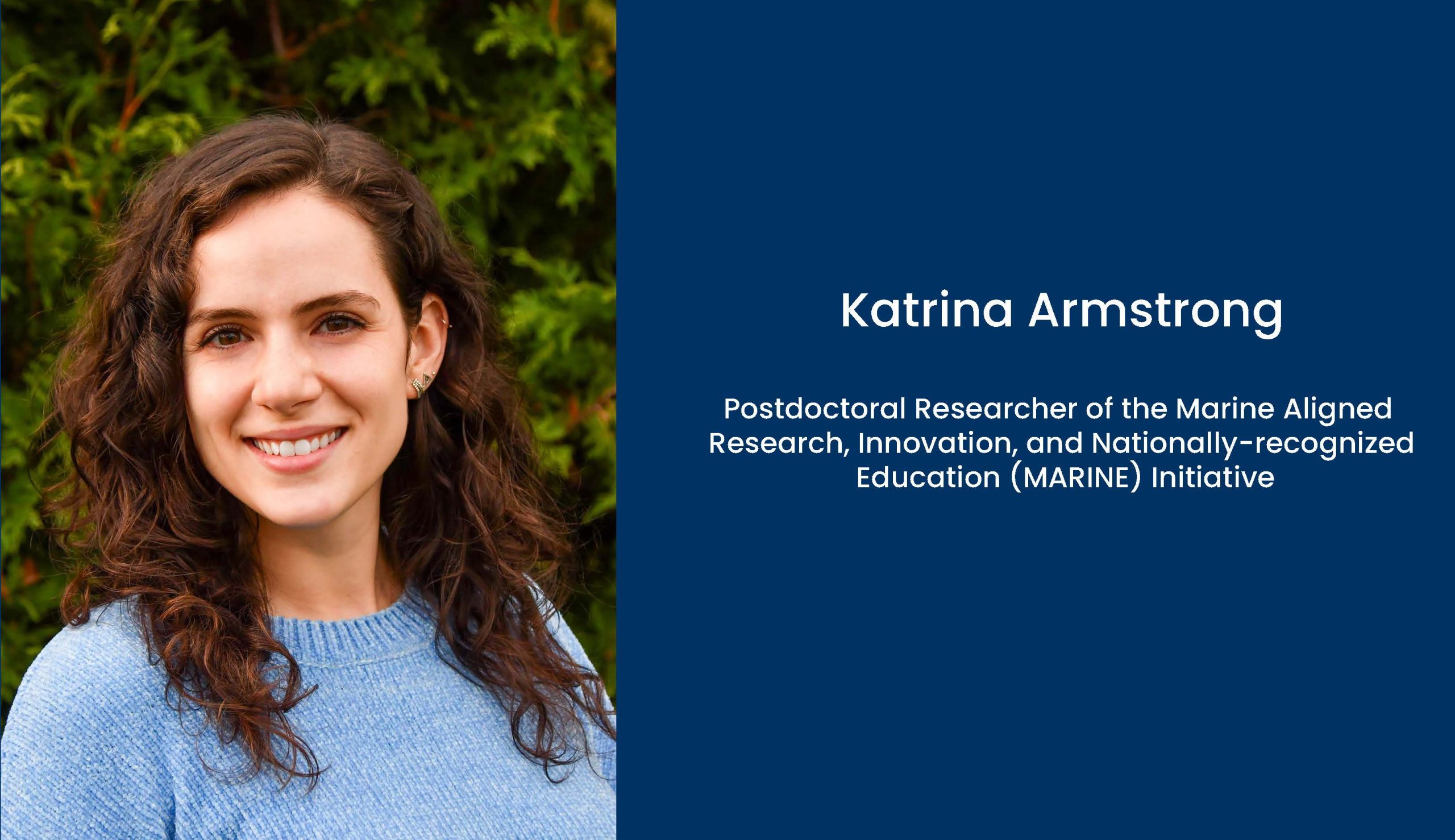
UMaine MARINE welcomes Katrina Armstrong
The University of Maine (UMaine) stands as a leader in marine sciences, a position bolstered by the collaborative efforts of UMaine’s Marine Aligned Research, Innovation, and Nationally-recognized Education (MARINE) Initiative. Recently, UMaine MARINE welcomed Dr. Katrina Armstrong as a Postdoctoral Researcher. Armstrong plays a crucial role in managing and advancing the initiative, contributing to the ongoing success of UMaine MARINE and its mission.
Founded in 2021, UMaine MARINE brings together researchers from across the state to engage in innovative and interdisciplinary research, education and outreach related to the marine realm. In a world grappling with the escalating threats of climate change, rising sea levels, and increasing global temperatures, Armstrong is committed to interdisciplinary collaboration and collective action, both integral aspects of UMaine MARINE’s mission.
Armstrong began her marine sciences journey at the University of South Carolina, earning her bachelor’s in marine science and a master’s in biology. Specializing in conservation genetics, her research focused on utilizing population dynamics as a tool to inform the conservation and management of bluefin tuna and sea turtles. “My passion lies in understanding and preserving marine biodiversity through scientific inquiry and community engagement,” reflects Armstrong on her early academic choices. In 2023, she earned her doctorate in biology at Stanford University, where her research took an interdisciplinary approach, identifying heat tolerant corals and examining the fate of corals and their associated endosymbionts post-transplantation. Her work also underscored the pivotal roles that community members play in restoration efforts.
At UMaine, Armstrong’s unique postdoc position involves connecting, building networks, and promoting research that bridges marine sciences with fields like business, economics, anthropology, and engineering. UMaine MARINE is committed to innovative transdisciplinary marine research and education. “We are breaking the mold of traditional research at UMaine MARINE. We foster a collaborative environment that unites varied disciplines to address complex marine issues,” explains Armstrong.
Championing a holistic approach to marine research, Armstrong asserts, “We must leave our research bubbles and collaborate across disciplines. This collaborative approach will lead us to effective solutions for climate change challenges,” placing UMaine MARINE at the forefront of innovative marine research.
UMaine MARINE has become a critical center for interdisciplinary marine research. Armstrong’s efforts in connecting various units within the initiative play a key role in creating a broad, impactful research community. “Creating synergy where the sum is greater than its parts,” she says, underscores the importance of collaboration in marine sciences.
For those interested in learning more about UMaine MARINE or getting involved in UMaine MARINE Research, please contact marine@maine.edu. Stay informed about upcoming events and more by signing up for the UMaine MARINE Newsletter here.
Written by Karalyn Kutzer
